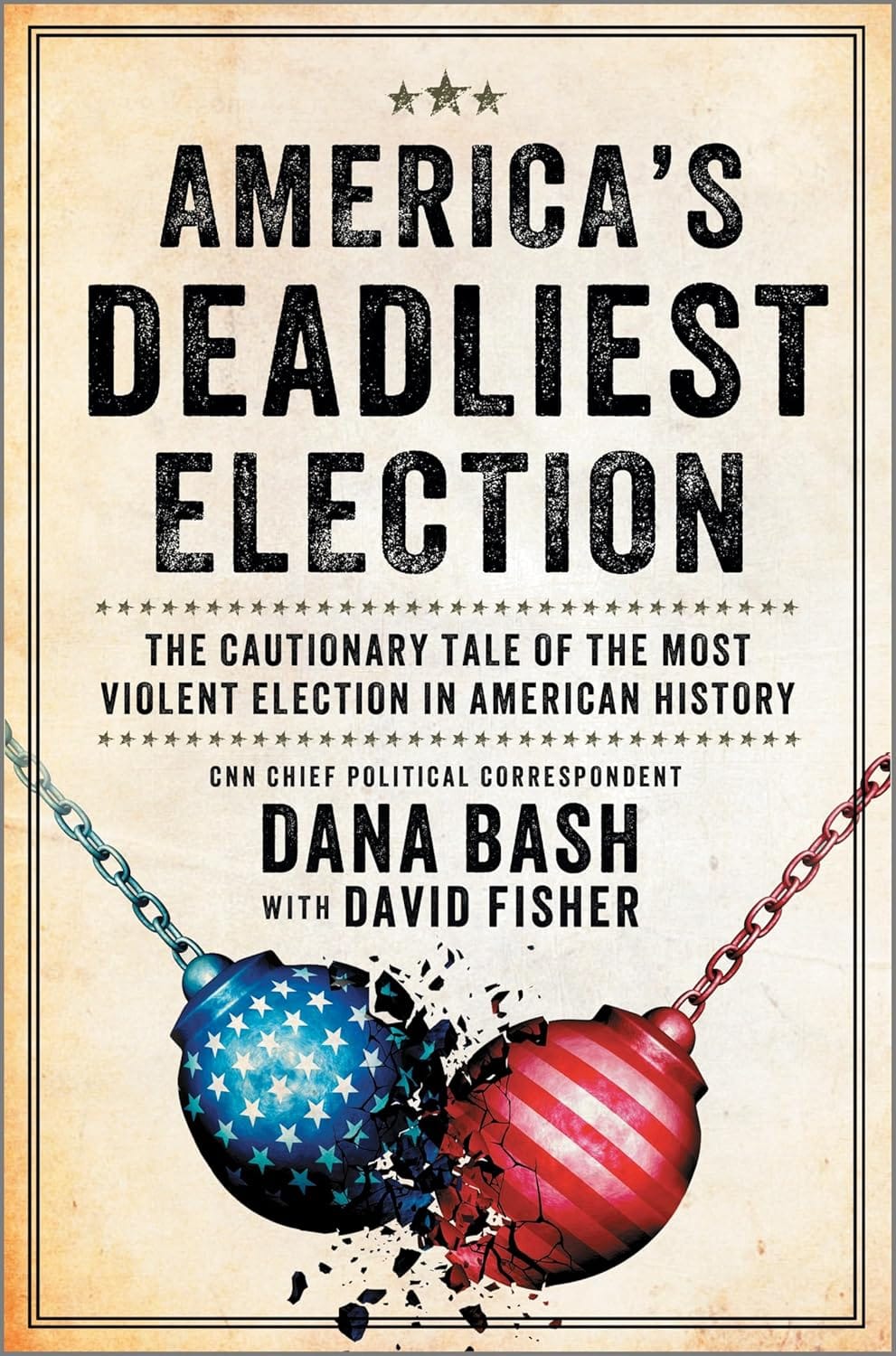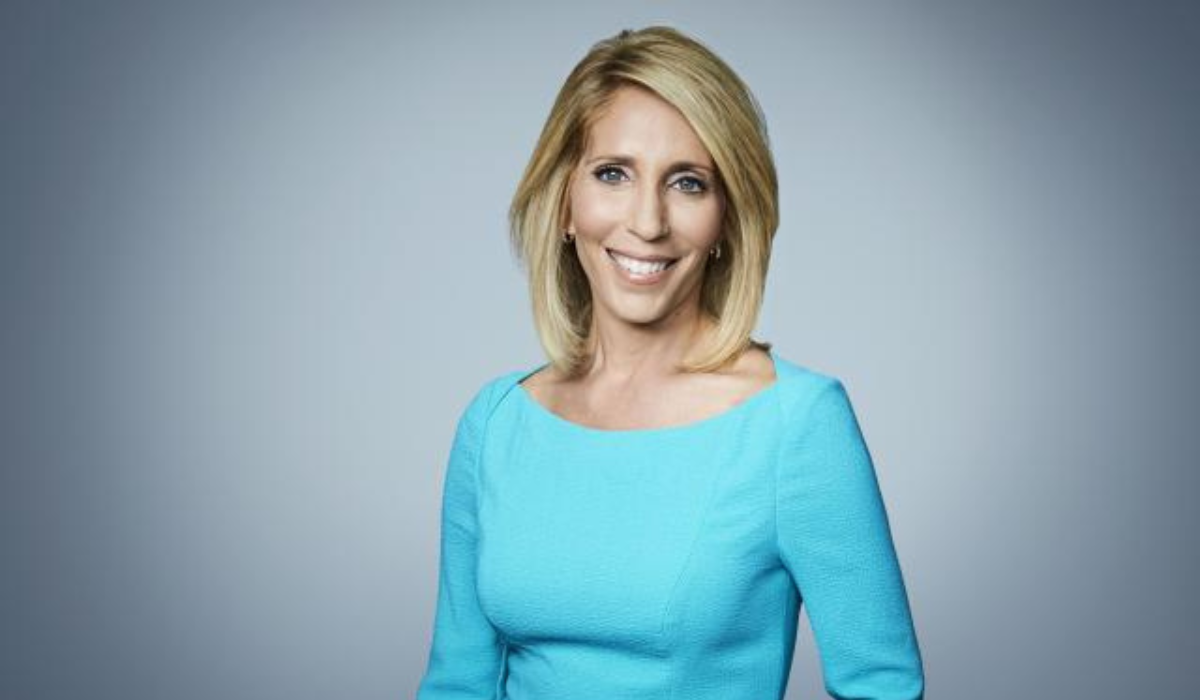CNN’s Dana Bash: I Moderated the Last Debate, Here’s What I’m Looking For This Time and What You Should Too
As CNN’s chief political correspondent, Dana Bash is steeped in the dynamics and complexities of our upcoming election. She moderated the first presidential debate in June, which led to President Biden ending his campaign. She landed the first interview with Vice President Harris after she became the Democratic presidential nominee.
And like many of us, Bash recognizes the intensity of the moment in which we find ourselves—and she’s looking to learn from America’s history to help her make sense of things. In her new book, America’s Deadliest Election, Bash writes about an election that took place in 1872 that turned violent—and how it holds lessons for us in 2024.
So, what does Bash want all of us to know about this historical election in our country when our democracy was pushed to the breaking point? How does it parallel today’s divided political landscape? And what will she be looking for from our current presidential candidates in this week’s debate? The Sunday Paper sat down with Bash to ask her these questions and more.
A CONVERSATION WITH DANA BASH
What were some of your biggest takeaways after writing your book, America’s Deadliest Election?
I didn’t really know anything about Louisiana’s 1872 gubernatorial race and the chaos surrounding it before writing this book. This election was all about racial strife and the South trying to find its way in a post-Civil War was Reconstruction Era. The white southern Democrats realized they could use voter suppression and intimidation against blacks at the ballot box to keep society as close as it could be to pre-Civil War times, without actually having slaves.
But when these white supremacists used those tactics, chaos, corruption, and fraud was the result—and nobody could figure out who actually won the election. So, two governors claimed victory and two competing legislatures were sworn in. This went on for months and culminated in what became known as the Colfax massacre, when a group of white supremacists attacked a local courthouse and killed 150 black men standing in their way.
The fallout from this had big ramifications in that it ushered in Jim Crow laws in the South. And one of the big takeaways is that we really must learn from history.
How can this under-taught piece of American history help us put today’s political climate into context?
We just have to look at the last election to see how tenuous it is to not only have the right to vote, but to have the right rules around allowing people to cast their ballot. What happened in 1876, four years after Louisiana’s gubernatorial election, was total mayhem within the next election in Louisiana as well as other states in the South. There was even a debate about whether the Vice President had ceremonial jurisdiction over the counting and the certification of the Electoral College. Sound familiar?
But then what happened is that in four states, the votes were thrown out—which is a nightmare scenario for what could happen now if our slates of electors are compromised or contentious in any way once they leave Pennsylvania or Georgia or any of the key swing states that will decide the election this year.
When you consider our country’s history alongside our current political atmosphere, how do you feel?
It makes me feel hopeful in that things have been so much worse. Watching what happened at the Capitol on January 6 was heartbreaking and scary, but not unprecedented. There were other insurrections, multiple in Louisiana. We have also seen violence as part of our electoral system in the past. If we can get through that, maybe we can get through this.
Having said that, I also believe we need to know our nation’s history, so we see it as a cautionary tale.
What will you be watching for—and what should all of us be watching for—in the presidential debate on Tuesday?
I’ll be watching how each of the candidates comports themselves. It’s the first time Vice President Harris and former president Trump are meeting in person; I didn’t realize that until I interviewed the Vice President last week. They’ve never interacted face to face. To see this first meeting is going to be fascinating.
We all know there are lots of Donald Trumps who could show up—we’ve seen all of those versions. How Kamala Harris deals with that and how she sells herself and explains what she wants to do for Americans as president will be key. Harris did it at the convention. She’s done it in her big speeches. But the debate stage is going to be a very different platform for her that we haven’t seen her in yet. This is a historically important moment.
What do you think a “win” will look like to each of the candidates?
It really all comes down to the voter: What do they want to know? What do they want to see? What do they want to hear? I believe each candidate needs to find a way to convince persuadable voters, which is the whole ballgame here, that they will be better on the economy and on the affordability crisis, which is huge in this country.
Beyond that, we know that in addition to top issues, voters care about how a candidate makes them feel. Do they feel comfortable with this candidate? Do they like this candidate? Do they want to see this candidate in their living room or on their phone every day for four years? That’s a huge part of it.
As a veteran journalist, you ask questions and listen carefully for a living. Can you share your advice for the rest of us when it comes to doing both, especially in heated conversations about politics?
I think it’s crucial for all of us to get out of our echo chambers. We have to find a way to get out of the silo that everybody inevitably ends up in because the algorithms push you there on your phone, or because you follow certain people on social media.
Stretch yourself and find people who don’t necessarily agree with you or who have a different point of view than you do—as long as it’s not someone on the fringe spouting conspiracies. Reach out to a thoughtful person who has a different worldview than you do, and I think you’ll be surprised at how much more you learn about a topic or embrace an idea that previously you’d have never even considered.
Can you speak to our current divide—political, gender, generational—and share any advice on how to not fall on one side or another?
Being divided is actually healthy, because we are a democracy. Democracy encourages healthy debate. Yet while it’s great to have different points of view and debate them, then you have to take that next step and see areas of agreement where compromise can happen.
As the masterful legislator Ted Kennedy famously told me and everybody else following him around the Capitol: “Don’t let perfect be the enemy of the good.” You have to take half a loaf sometimes, because sometimes that’s better than no loaf.
What do you most hope readers will take away from your book?
Those who don’t know history are doomed to repeating it. I hope this book helps readers get to know our history, especially when it comes to voting. We have to keep our eyes wide open to make sure that the system is not corrupted—and I mean genuinely corrupted, not accusations of corruption that there is no evidence for.

Dana Bash is CNN's chief political correspondent and the anchor and host of Sunday morning's State of the Union, serving as the network's lead reporter covering campaigns and Congress. She regularly acts as a moderator for CNN's political town hall specials and debates, including CNN's first debate of the 2020 election cycle in Detroit. She has conducted sit-down interviews with major players in the political sphere during 2016, including Donald Trump, Senators Ted Cruz, Marco Rubio and Bernie Sanders, and Governors Jeb Bush and John Kasich. She is based in Washington, DC.
Please note that we may receive affiliate commissions from the sales of linked products.



